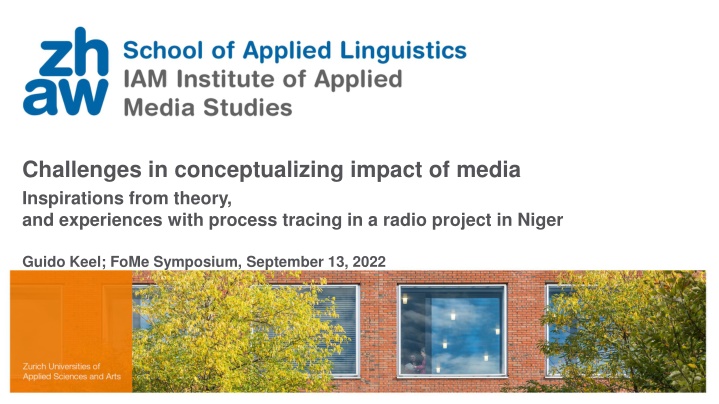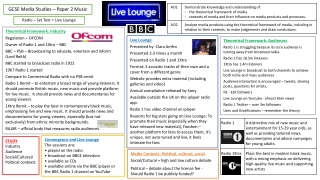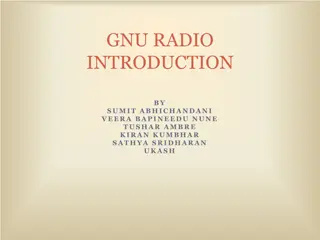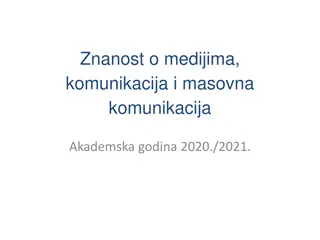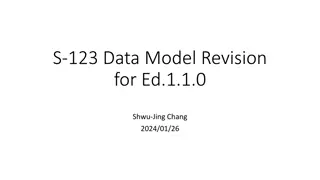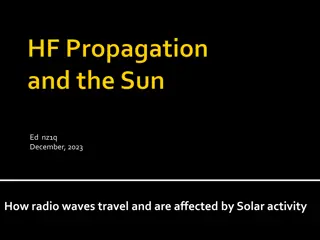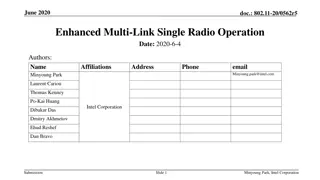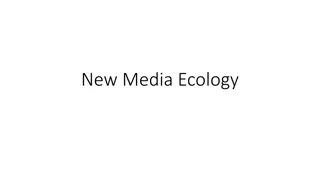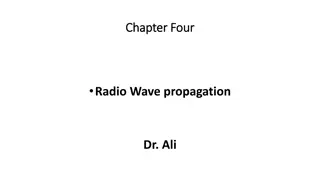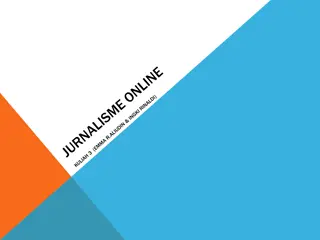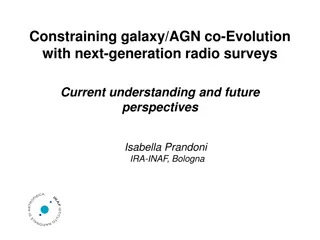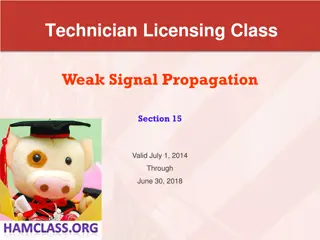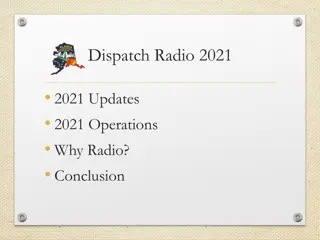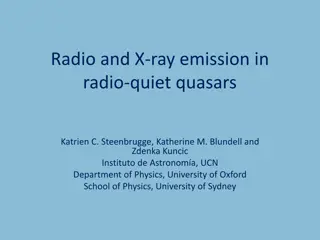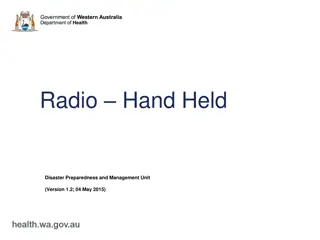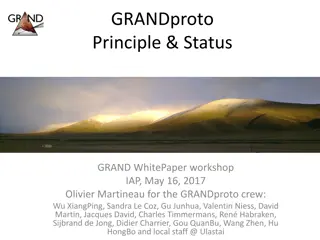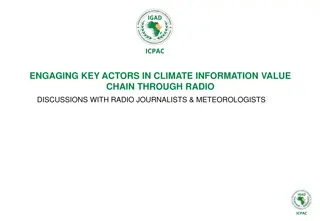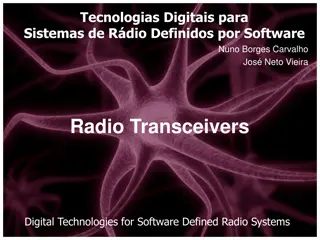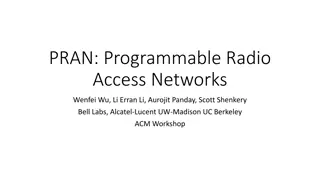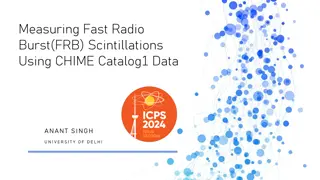Challenges in Conceptualizing Impact of Media: Insights from Radio Project in Niger
Delve into the complexities of media impact with a focus on a radio project in Niger. Explore theories, experiences, and assumptions regarding media effects, context factors, target groups, and expected outcomes. Unravel the intricate web of media influence over time and society.
Download Presentation

Please find below an Image/Link to download the presentation.
The content on the website is provided AS IS for your information and personal use only. It may not be sold, licensed, or shared on other websites without obtaining consent from the author.If you encounter any issues during the download, it is possible that the publisher has removed the file from their server.
You are allowed to download the files provided on this website for personal or commercial use, subject to the condition that they are used lawfully. All files are the property of their respective owners.
The content on the website is provided AS IS for your information and personal use only. It may not be sold, licensed, or shared on other websites without obtaining consent from the author.
E N D
Presentation Transcript
Challenges in conceptualizing impact of media Inspirations from theory, and experiences with process tracing in a radio project in Niger Guido Keel; FoMe Symposium, September 13, 2022 Zurich Universities of Applied Sciences and Arts
Propositions 1. In media projects, we often have simplified assumptions about media effects. 2. Media effects rely as much on the context ( social ecosphere ) as on the content of a media intervention. 3. Audiences / target groups of media projects live in a complex social ecosphere of knowledge, beliefs and norms. 4. Media effects are potentially functional and dysfunctional for society. 5. Media effects manifest themselves over longer periods of time. Zurich Universities of Applied Sciences and Arts 2
Assumption Media have great impact on isolated individuals Stimulus response Media effect Strong, predictable, homogeneous Processes Manipulation, Imitation Audience conception Socially isolated, gullible Zurich Universities of Applied Sciences and Arts 3
Assumption Media have limited effects on socially embedded individuals Limited effects Weak, unpredictable, reinforcing, depending on social contect Avoiding cognitive dissonance Media effect Processes Audience conception Small social groups Some kinds of communication, on some kinds of issues, brought to the attention of some kinds of people, under some kinds of conditions, have some kinds of effects. (Berelson, 1950) Zurich Universities of Applied Sciences and Arts 4
New Assumption Media effects are complicated and take time differentiating homogenizing Uses and Gratifications ( Individuals actively seek out specific media to satisfy specific needs. ) Agenda Setting ( Media set relevant issues on public agenda, creates public discourse. ) functional Cultivation Theory ( The more you watch TV, the more you think the world is like on TV ) Knowledge Gap ( Media consumption widens the knowledge gap in society. ) dysfunctional Spiral of Silence ( People take on minority views to conform with perceived reality. ) Zurich Universities of Applied Sciences and Arts 5 (Bonfadelli 2004)
experiences with process tracing in a radio project in Niger Questions from a theoretical point of view Who is the target group of the intervention? What are the assumptions about media effects? What are assumed processes (only rational choice?)? What are relevant context factors? When are effects to be expected/measured? What are aggregate effects (society)? etc. Idea Define detailed chains of media effects with project team, stakeholders, and check with target group if chain holds up. Zurich Universities of Applied Sciences and Arts 6
Thank you! Zurich Universities of Applied Sciences and Arts 7
